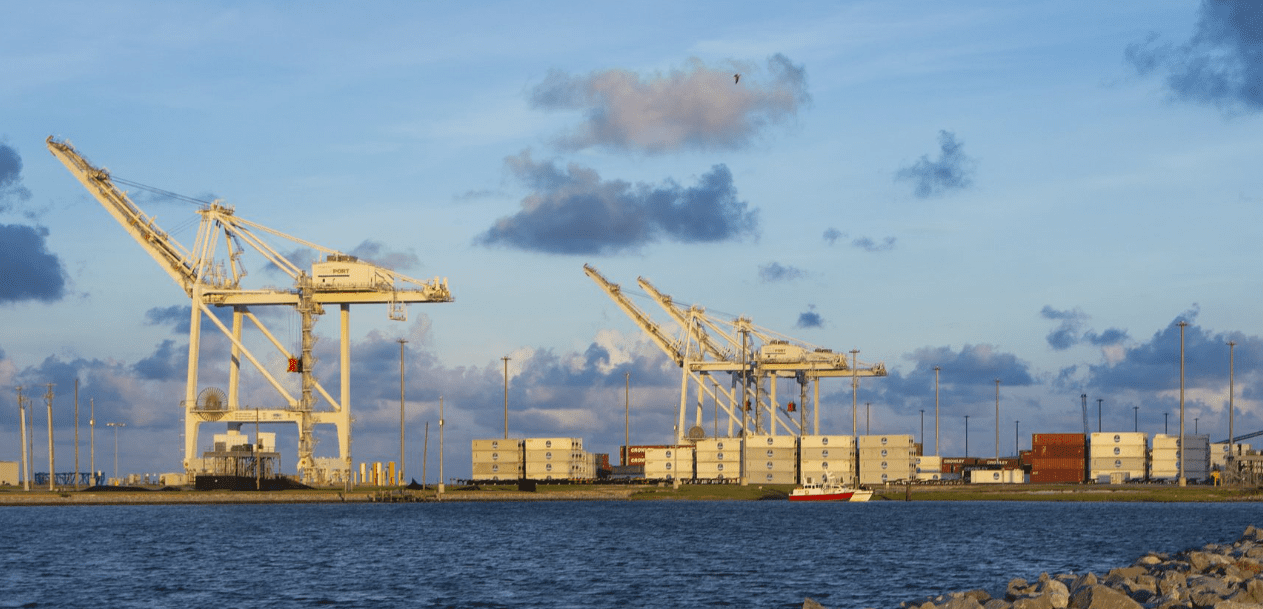
(Photo James Jones Jr. | Shutterstock)
- API’s Gifford Briggs writes that Mississippi’s natural gas can be a leader on the global market in lowering emissions in energy.
Right before President Trump’s inauguration, the American Petroleum Institute joined Mississippi Attorney General Lynn Fitch and four other states to challenge a last-minute order from the outgoing Biden Administration that prohibits oil and gas development across millions of acres of federal waters in the Gulf.
This politically motivated ban is simply a last-minute gesture that sets a dangerous precedent and only aims to paralyze the incoming administration’s promise of “unleashing American energy.”
In fact, the Trump Administration has fortunately taken executive action and has since revoked the ban on Day One. However, this action may take a while to implement and could face legal challenges, all while the Gulf economy and everyday Mississippians are left vulnerable to future attacks on offshore energy.
In the wake of American voters’ rejection of such disastrous policies, it’s our hope the courts definitively reverse Biden’s politically motivated decision, which would keep energy prices low for Mississippi families and grow the state’s energy economy.
The former Biden Administration’s last-minute order withdraws 625 million coastal acres of land from development in key geographies from Alaska to the Pacific and Atlantic Oceans and here in the Gulf region. While President Trump has denounced the ban with his executive orders, further court action must clarify how the prior administration went beyond state authority and interests. While the waters affected by the Biden ban aren’t currently being explored for drilling, such directives from the federal government to permanently ban certain waters is a slippery slope for future administrations, which may seek to ban offshore access in totality.
This would have devastating consequences for Mississippi, a critical Gulf Coast state with substantial energy infrastructure that even still needs four times as much energy as it currently produces due to a strong industrial sector and its climate, according to the U.S. Energy Information Administration (EIA).
This is why Attorney General Fitch joined AGs from Alaska, Alabama, Georgia and Louisiana to protect our local economy and the thousands of impacted jobs. Fitch stated that “[b]anning oil and gas production takes direct aim at everyday Americans, skyrocketing energy bills when their budgets are already tight.”
Fitch further detailed that this move illegally subsumes Congress’ authority, as “[t]his is precisely the sort of unbounded delegation of authority that has led the Supreme Court to find non-delegation violations on the ground that ‘Congress had failed to articulate any policy or standard to confine discretion.’”
Offshore drilling is integral to the U.S. and Gulf economy, as Gulf production accounts for 14% of total crude oil production and could generate over $8 billion in additional revenue by 2040, according to the EIA.
Greater access to energy and infrastructure is critical to lowering prices for families across the country and in Mississippi. The EIA found in their 2023 Annual Energy Outlook that the continued expansion of natural gas infrastructure is paramount to ensuring access to low-cost energy. Investing and allowing infrastructure development will help to increase our regional and national gas supply, which in turn will lower domestic prices and ease inflation.
Research has also revealed the environmental efficiency of Gulf offshore production. A report from McKinsey found that Gulf offshore production has significantly fewer emissions than foreign state-owned oil and natural gas sources, including Saudi Arabia, the UAE and other OPEC+ countries; this is due to our energy-efficient infrastructure and high throughput that minimizes carbon intensive processing.
The National Ocean Industries Association (NOIA) has further corroborated this with a comprehensive 2023 report that found that total US oil production has a carbon intensity 23% lower than the international average outside of the U.S. and Canada, or 46% lower than nations like Russia, China, Brazil, Iran, Iraq, and Nigeria. On the global market, Mississippi’s natural gas can be a leader in lowering emissions in energy.
The central issue at hand is that if the ban were to survive, this would set a detrimental precedent that would hamper Mississippi’s energy economy and security. The legal precedent of this ban could allow a future president to completely ban all offshore activity in the Gulf. Furthermore, the ban is a blatantly unlawful move outside of the former president’s authority to permanently close millions of acres of waters to development. President Biden clearly supplanted individual states’ authority that ignores the exact constituents whose jobs and livelihoods would be impacted, which in future bans could shut down entire state economies like ours.
While President Trump’s overturning is a positive step from the federal level, Congress must act quickly as well to avoid such orders and safeguard our energy economy and national security for the future. Congress must stand up and protect the Gulf’s ability to develop their energy resources and develop a new five-year offshore leasing program, thereby changing course and unleashing American energy dominance in 2025 and beyond.








